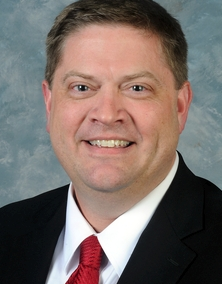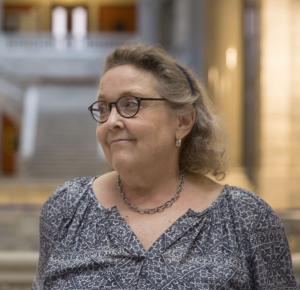There is one provision of the Kentucky open records law that Representative Jason Petrie (R-Elkton) neglected to include in the committee substitute to HB 387 which passed out of the House Economic Development Committee late on February 26.
That revision would “clarify,” a term Rep. Petrie used to describe his bill, the statement of legislative policy that now appears in the open records law.
Petrie should revise that statement of legislative policy that appears in the open records law from “[f]ree and open examination of public records is in the public interest” to “[f]ree and open examination of public records is NOT in the public interest.”

Jason Petrie
This, at least, will explain Petrie’s original bill and the committee substitute, both of which are premised on a policy disfavoring access and the apparent belief that “darkness [not sunlight] is the best disinfectant.”
Stated another way: The less the public knows, the happier it will be.
Don’t look for the committee substitute to the bill online or check the KET archives to review the committee debate on the bill. As of 4:00 pm, February 27, the sub has not been posted on the LRC website. And the committee meeting, which convened in the late afternoon of the 26th, after adjournment of House business, was not televised. By stealth our legislators work to secure greater stealth.
But, of course, the less the public knows, the happier it will be.
For those who wish to remain happy, avert your eyes. For those who choose knowledge over happiness, here are the major features of Petrie’s bill “clarifying” the open records law.
The bill will expand three existing exceptions to the law that are intended to promote economic development in the state that have been liberally construed by the courts and the attorney general through the years. It will introduce two new exceptions relating to economic development. These revisions will ensure that we never have to bother our silly little heads with such dreck as rejected incentive packages, like the package offered by the City of Louisville to Amazon to relocate it second headquarters in the city at an estimated cost to the taxpayers of $2.5 billion, or who the shareholders in Braidy Industries are despite the fact that we have a $15 million dollar investment in the company.
The bill will “clarify” the preliminary documents exception by repudiating 37 years of open records interpretation and limiting public access to only those documents that are “incorporated in the final findings, order, or record.” If the records are not physically attached or “incorporated by reference,” it will be argued, they will remain forever exempt. But who among us really needs to know why an agency took the final action it took? As long as we know the final action taken, what possible good would there be in knowing how and why that action was taken.
Under the bill, requesters will have no mechanism for challenging the Legislative Research Commission’s denial of a request for legislative records beyond the Commission. But do we really want to risk our happiness in pursuit of an appeal to the courts of a highly questionably and self-serving internal review process?

Amye Bensenhaver
Under the bill, unspecified “records” generated by public agency attorneys will be shielded from inspection under a new exception for “attorney client work product,” a term that conflates two separate privileges. But who are we to question whether one or both of the privileges actually applies to a “record” simply because it passes through an agency attorney’s hands?
Last, but certainly not least, the bill will “clarify” that only Kentucky residents may use the open records law. We will join a small minority of states that take this retrogressive position. Nonresident applications for public records of the Commonwealth will be summarily rejected.
Petrie apparently gave little thought to the bureaucratic nightmare associated with verification of residency that this will create, the disservice it does to both resident and nonresident open records applicants, and the unnecessary delays it will occasion.
As for the oft-quoted 1994 case recognizing that the Legislature “clearly intended to grant any member of the public as much right to access information [under the open records law] as the next?” That case, along with many others, will be swept into the judicial dustbin. Not to worry. We are actually doing nonresidents a favor since the less they know the happier they, too, will be.
Our thanks to Rep. Petrie, for “decid[ing] what is good for the public to know and what is not good for them to know.” Now if we could only convince James Madison to “clarify” his pronouncement that “[k]nowledge will forever govern ignorance.”
From this day forward “ignorance will forever govern knowledge” in Kentucky.
Amye Bensenhaver spent 25 years as an assistant attorney general in Frankfort and is an expert on open records and open meetings. Now out of state government, she writes about these issues. She has written more than 2000 legal opinions related to the state’s open records and open meetings laws. If you have questions or comments about Kentucky’s open records laws, please email Ms. Bensenhaver at missbhaver@gmail.com. She is a regular contributor to the University of Kentucky School of Journalism and Media Scripps Howard First Amendment Center Open Government Blog.
















